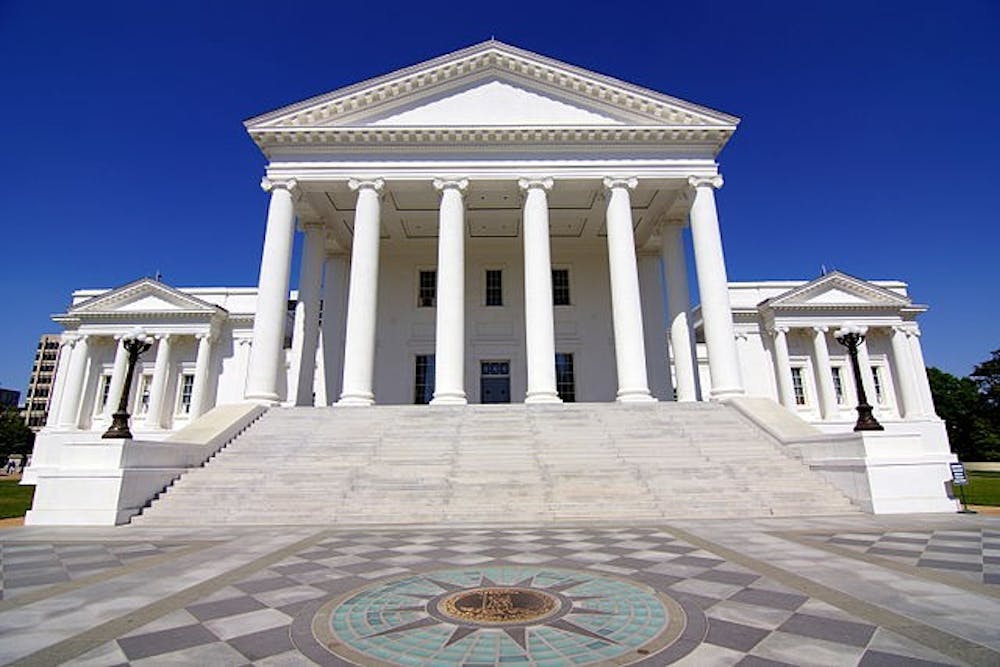Students traveled to the Virginia State Capitol in Richmond Sunday to protest Governor Glenn Youngkin’s proposed model policy which restricts the rights of transgender students in public schools. The demonstration was organized by the Virginia Collegiate Queer Collective.
VCQC is composed of over 30 LGBTQ+ organizations across Virginia and was initially formed by three CIOs at the University — Sigma Omicron Rho, Out in STEM and the Queer Student Union — in response to Youngkin’s proposals in Septembe. Groups at other colleges were incorporated over time.
The new model policies were proposed by the Virginia Department of Education under Youngkin’s administration Sept. 17 and would restrict accommodations available to transgender students and require schools to notify parents if a student seeks counseling through the school. In a letter to partner organizations, VCQC said requiring teachers to “out students to their parents” would put LGBTQ+ children in danger.
Spencer Haydary, legal and policy director of VCQC and third-year Law student, said he disagrees with the proposal’s framing of parental rights.
“At the end of the day, you can talk about parental rights all you want,” Haydary said. “But what this is going to do is it's going to endanger the lives of trans children.”
Haydary attended the protest Sunday and said the impacts of the proposals make action against them especially urgent.
Caroline Davis, education director of VCQC and fourth-year Engineering student, emphasized that there are power in numbers. VCQC ist he largest network of collegiate LGBTQ+ organizations in Virginia.
“We need to be the voices because we have the numbers to raise our voice,” Davis said.
First-year College student Alex Church, who attended and helped organize the demonstration, said the proposed policies would make education inaccessible to transgender students.
“This is about making sure that school is somewhere where everyone should feel safe and welcomed,” Church said.
The VCQC’s efforts have also focused on the 30-day public comment period on the proposals, which ended Wednesday. Davis said that the VCQC’s goal is to “flood [the VDOE’s] inbox” with public comments. The organization is hosting a public comment workshop Wednesday at 8 p.m. in Newcomb Hall to educate members of the public on submitting an effective comment.
Haydary said that the University’s resources are a valuable tool in efforts against the model policy. He is working with a group of fellow students and professors in the School of Law to take legal action against the policies.
“We've been really focusing on leveraging the power and privilege that the law school has,” Haydary said. “The decision about who to be out to, about what is best for a trans child, is just that — it is up to a trans child. It should be up to no one else.”







